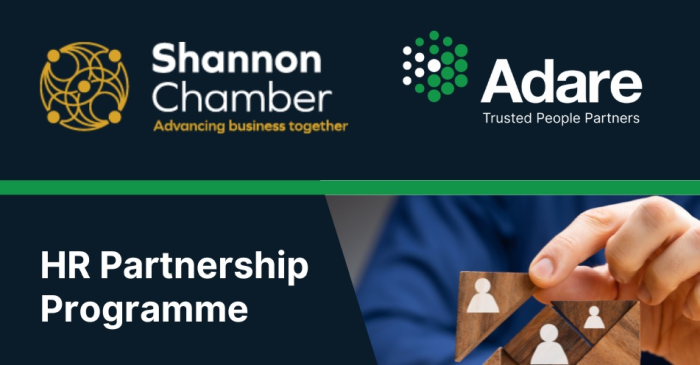
High Price of Replacing Employees Highlights Importance of Retention
Adare’s most recent HR Barometer Series 8.1 included one remarkable figure that highlights the high price Organisations pay to replace Employees.
The research found that the average cost of replacing an Employee in 2024 in the Munster region is €10,600, up over €3,000 from €7,321 in April 2022.
Aggravating Labour Market Conditions
With a skills shortage and persistent tight labour market conditions, Organisations remain under pressure to increase pay and benefits to retain talented Employees. The external labour market forces also have another unwanted side effect as Employees may face an increased workload while vacancies remain open. If this situation persists, increased workloads can amplify the risk of more Employees seeking alternative employment and further exacerbate any turnover issues that might exist. With relevant skills still relatively scarce in many sectors, high recruitment costs and ongoing challenges around replacing Employees promptly, Organisations continue to face a short to medium-term struggle to retain talented Employees and keep Employee turnover levels as low as possible. With an expected Employee turnover rate of 12% for the full year in 2024, the cost of simply replacing Employees could amount to a large annual budgetary item. These increased financial costs are accompanied by time and management costs as leadership teams and HR departments devote more time to talent acquisition at the expense of achieving greater progress in other areas of priority for strategic HR.
How Can Employers Rise to the Challenge
The figures highlight the importance of taking a proactive approach to Employee retention and engagement. While there may be an initial cost in developing effective HR strategies in these areas, improving Employee retention and attracting new talent can result in substantial cost savings for an Organisation over time.
The causes of high Employee turnover will vary from Organisation to Organisation, but the following non-exhaustive list of approaches to tackling high levels of Employee turnover are commonly applicable:
– Understand Why Employees Leave
When an Employee leaves, record what their reasons for leaving were. If you notice a trend developing, take action to ensure you minimise the risk of more Employees leaving for the same reason. The most common reasons for Employee resignations cited by Organisations surveyed this year were pay (63%), career progression (50%) and location change/travel (45%).
– Employee-centric HR Initiatives
The HR Barometer also revealed that the percentage of Employees leaving for a higher remuneration package decreased slightly from 68% in 2022 to 63% in 2023. This suggests Employees may be placing less emphasis on pay as the primary motivator for changing job. For Organisations, the response could be to adopt a more holistic view of Employee satisfaction. By understanding the reasons behind Employee turnover and strategically addressing them through tailored HR initiatives that begin upon induction and continue beyond offboarding, Employers can develop a more proactive and Employee-centric HR management strategy. This approach helps to cultivate a more engaged, loyal, and productive workforce.
– Make Work Life Balance Work
Despite the recent introduction of new statutory Employee rights around requesting remote and flexible work, many Organisations are still struggling to implement these working practices effectively. Although held out as a benefit that can strengthen the employment relationship, many Organisations are experiencing difficulties in the areas of retention, engagement and culture if their hybrid, flexible or remote working practices do not align with Employee expectations. It seems certain that the future of work will continue to be flexible and Organisations that can effectively address the human aspects of remote and hybrid work, like team connection and engagement, will be best positioned to attract and retain talent and achieve long-term success.
More about HR partnership Programme HERE
Adare is a team of expert-led Employment Law, Industrial Relations and best practice Human Resource Management consultants. If your Organisation needs advice, support, or guidance about compliance requirements or any HR issues, please contact Adare by calling (01) 561 3594 or emailing info@adarehrm.ie to learn what services are available to support your business
